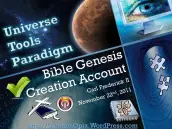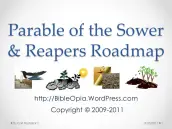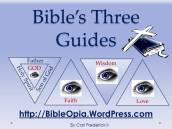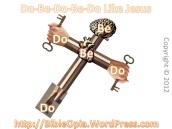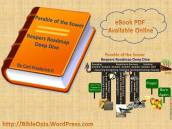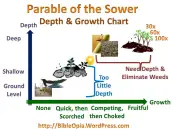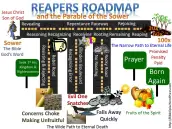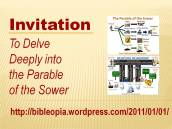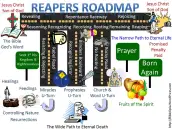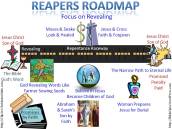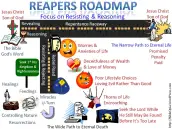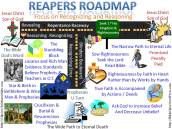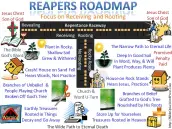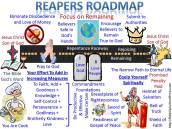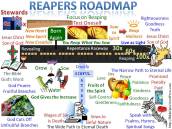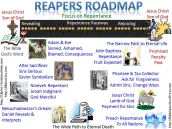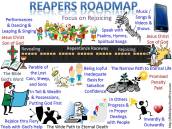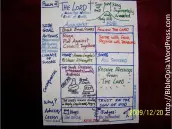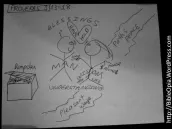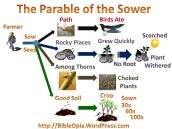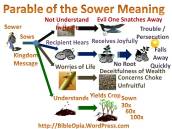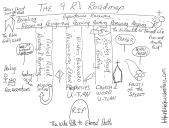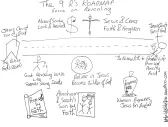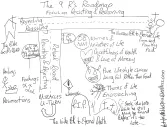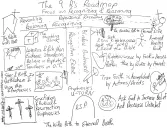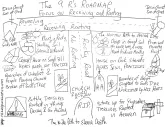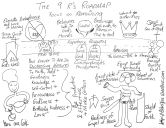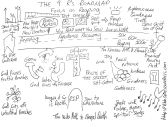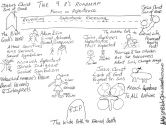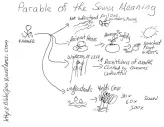When making decisions in life, like those involving morality, business, relationships, & competitions, key attributes in decision-making processes involve understanding ramifications and consequences.
There are cases at one end of the spectrum where people move “full steam ahead” without understanding or adequately considering consequences, and then later adjust as they go-along in life. On the other end of the spectrum exist cases where dwelling upon potential implications causes extreme-paralizing delays in decision-making. Scenarios at either end of the spectrum and scenarios in-between can be beneficial or detrimental to varying degrees in diverse forms depending upon each situation.
It is often practical for people to make decisions in life based upon partial & incomplete information, and then adjust course accordingly. It can be difficult to understand ahead of time what information is relevant and irrelevant. It can be tricky to understand what sources to trust to appropriate degrees in each area. It can be challenging to detect & attribute appropriately any “alterior motives”. It can be challenging to properly foresee ramifications and consequences to our decision-making. All these became obstacles to humankind making the proper decisions in their own best interest and in the best interest of their posterity.
(1) How did The Serpent adversely manipulate humankind into making poor decisions?
The Serpent tempted humankind to eat the Fruit of the Tree of the Knowledge of Good and Evil, yet clearly aimed both (1) to avoid and/or taint consultation with God and (2) to minimize consideration of any adverse consequences, to potentially undermine people making good decisions
The Serpent sought to inappropriately alleviate the concern of consequences by asserting that “You will not surely die”, to alleviate concerns they’d die by eating the Fruit of the Tree of the Knowledge of Good and Evil, based upon what God previously told them.
The Serpent’s assertion by itself could have triggered further consultation with God to more fully understand the potential consequences. To reduce the likelihood of that happening, The Serpent took steps to “poison the well” by asserting God really had “alterior motives” in saying they would die.
The Serpent made the statement that “For God knows that when you eat of it your eyes will be opened, and you will be like God, knowing good and evil.” This statement implied God would not be a good source to consult in this “decision-making” process, since it implied that God’s own interests above theirs would prevent reliable & trustworthy advice during any future consultation. This also glamorized “knowing good and evil” as beneficial, even if it was before God agreed humankind was ready for knowing more in this area. This tended to favor humankind’s relying upon The Serpent and also consulting their own minds in isolation in the decision-making process to detrimental effect.
The Serpents first question “Did God actually say, ‘You shall not eat of any tree in the garden’?” sought to establish humankind as the source of what God instructed previously. This appeared to reinforce the notion to consult their own mind & memories if there were any questions on what God said, rather than to seek out further consultation with God directly.
(2) What clues existed that either The Serpent had “alterior motives” or The Serpent was “not fully informed”?
Taking a step back, The Serpent exhibited “alterior motives” and “ill will” to harm humankind. It’s possible if humankind consulted God that people would have uncovered truths behind The Serpent’s deception. Alternatively, the seeds of doubt & distrust sowed by The Serpent “possibly” would have “undermined” relying upon God’s future good advice to people if people had directly consulted God further.
The first question where The Serpent asked “Did God actually say, ‘You shall not eat of any tree in the garden’?” does provide the first clues that the Serpent either had “alterior motives” or was “not fully informed”. How so? Humankind knew God permitted them to eat of the Fruit of any Tree in the Garden except the Fruit of the Tree of the Knowledge of Good an Evil. If the Serpent knew this, then why would the Serpent’s question imply the opposite? If the Serpent did not know this, then how reliable were the Serpents future assertions? The initial question provided clues to the Serpent’s “alterior motives”, “misinformation”, “disinformation”, and/or “manipulation”.
The second set of clues as to The Serpent’s “alterior motives” were humankind’s prior interactions with God, where God created humankind & provided good things as part of their relationship. It is reasonable to infer that Humankind would have personally directly & indirectly experienced God’s Good Will, Good Motives, and Good Intentions multiple times, even though the Bible does not explicitly document all that happened between the time of creation and the time of the temptation in the Garden of Eden. How would the Serpent really know the internal intentions of God to as to malign God’s Good Character to imply poor motives? The bold assertions maligning God’s Good Character were an indicator that “alterior motives”, “misinformation”, “disinformation”, and/or “manipulation” were potentially involved, which warranted further investigation.
The third set of clues as to The Serpent’s “alterior motives” were the denial & downplaying of potential adverse consequences & glamorization of potential actions & outcomes. Humankind’s desire to eat the Forbidden Fruit left a blind spot where even “misinformation”/”disinformation” aligned to actions humankind desired to do increased the likelihood it would be favored advice despite lacking evidence. The “misinformation”/”disinformation” playing into what people “wanted to hear” then itself became a potential fourth set of clues as to The Serpent’s “alterior motives” while husband & wife were together by the Tree of the Knowledge of Good and Evil.
The temptation in the Garden of Eden was a test/trial where humankind faltered/failed to make the right decisions with ramifications & consequences for their generation and generations to come.
The temptation in the Garden of Eden also served as a test/trial to The Serpent as well, where The Serpent failed to fully consider eventual ramifications/consequences of misleading others & not assisting others to make good decisions. These actions continued to accumulate increased future debt/transgression/punishment to The Serpent. As an “evil” spiritual leader, the eventual end for The Serpent’s leadership will not be the gratefulness of the misled angels & people, since that evil leadership lies along the road to eternal punishment & eternal pain.
In our already fallen state, Our challenges are to understand past mistakes to make better future decisions. Our challenges are to learn from past good decisions to make future good decisions. Our challenges are to recognize our own poor past decisions to learn better decision-making. Our challenges are to properly recognize manipulations/misinformation/disinformation/ill motives, so as to take those into account in important decisions to the degree practicable. Our challenges where past decisions represent moral lapses are to repeatedly repent, seek forgiveness, and focus on how to improve our heart & our mind & our ways in the future to please God. Our challenges are to build up treasures in heaven with a life lived by faith as a follower of God the Father, God the Son, and God the Holy Spirit.
References:
Bible Genesis Chapter 3: https://www.biblegateway.com/passage/?search=genesis+3&version=ESV
Bible Matthew Chapter 6: https://www.biblegateway.com/passage/?search=Matthew%206&version=ESV
Bible Matthew Chapter 28th: https://www.biblegateway.com/passage/?search=Matthew%2028&version=ESV

